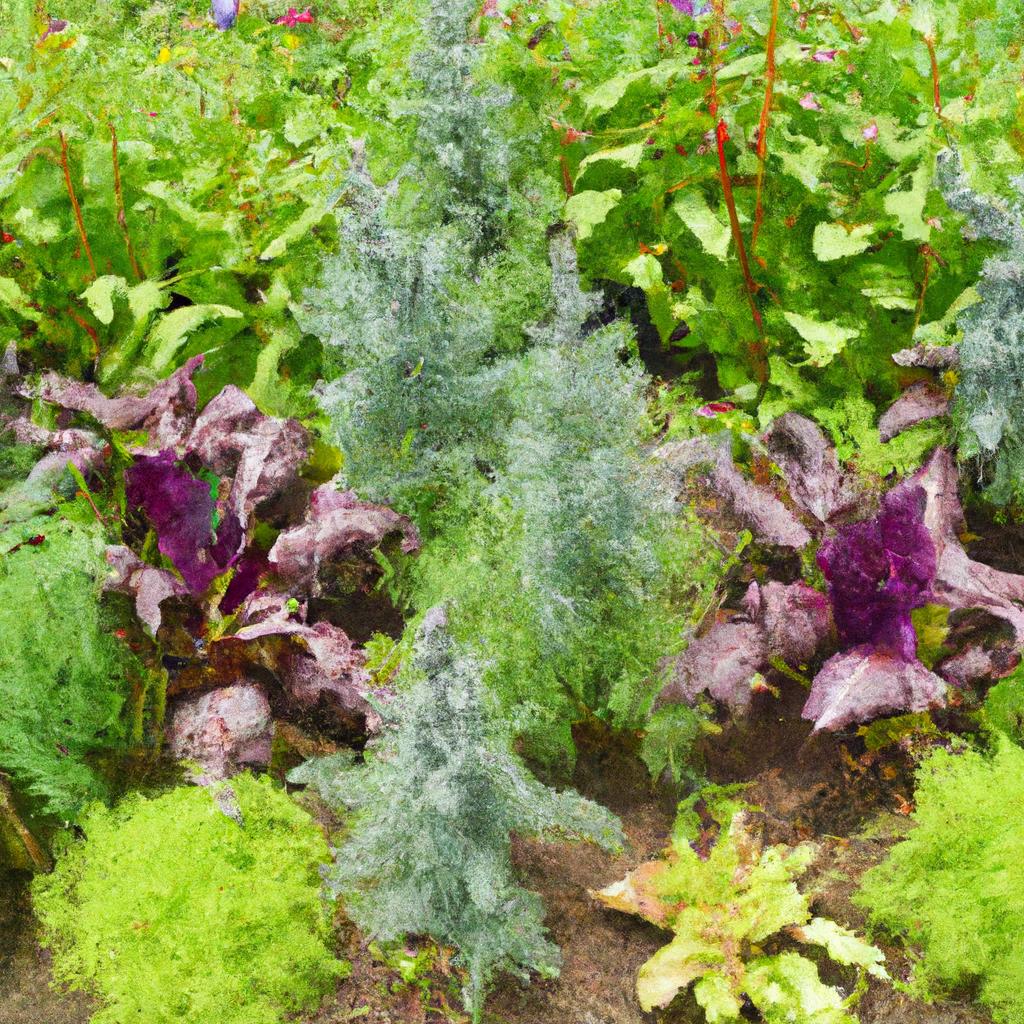Transform your garden into a haven of harmony and abundance with a feng shui vegetable garden. Discover the secrets to cultivating positive energy and thriving plants.
Introduction
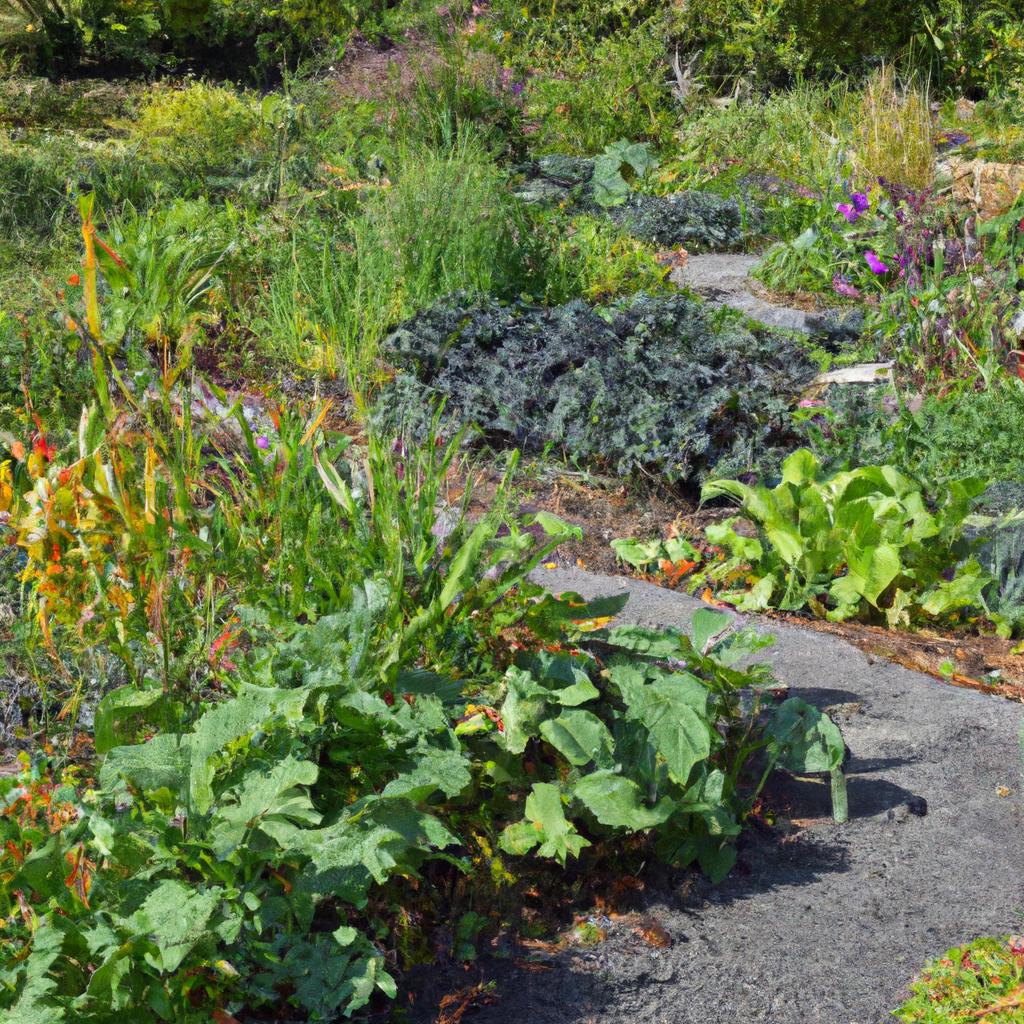
Are you looking to infuse positive energy, balance, and abundance into your vegetable garden? Look no further than the ancient art of Feng ShuIn this article, we will explore the world of Feng Shui and how it can transform your garden into a haven of harmony and vitality. Join homegardenartful.com as we delve into the captivating realm of Feng Shui and discover the incredible benefits it brings to your vegetable garden.
What is Feng Shui?
Feng Shui, which translates to “wind” and “water,” is an ancient Chinese practice that seeks to harmonize individuals with their environment. It focuses on the flow of energy, known as “qi,” and how it can positively impact various aspects of our lives. By harnessing the principles of Feng Shui, we can create a serene and balanced atmosphere that supports our well-being.
Importance of Feng Shui in Gardening
Gardening is not just about growing plants; it is a profound connection with nature and an opportunity for personal growth. Feng Shui adds a spiritual dimension to gardening, allowing us to cultivate positive energy and create a space that nurtures our mind, body, and soul. By applying Feng Shui principles to our gardens, we can enhance the vitality of our plants, promote harmony, and attract good fortune.
Benefits of a Feng Shui Vegetable Garden
A Feng Shui vegetable garden offers a multitude of benefits beyond the joy of growing your own food. By aligning with the natural elements and energy flow, you can expect an array of advantages, including:
- Increased abundance and prosperity
- Improved physical and mental well-being
- Enhanced harmony and balance in your garden
- Attraction of beneficial insects and wildlife
- Heightened connection with nature and the cycles of life
In the upcoming sections, we will explore how to choose the perfect location, design your garden with Feng Shui principles, select the right vegetables, maintain a harmonious environment, and ultimately reap the abundant rewards of your Feng Shui vegetable garden. So, let’s embark on this transformative journey together and unlock the secrets of cultivating a thriving and harmonious garden.
Stay tuned for Choosing the Right Location – Where Energy Begins to Flow.
Note: The article is written for the website homegardenArtful.com.
Choosing the Right Location
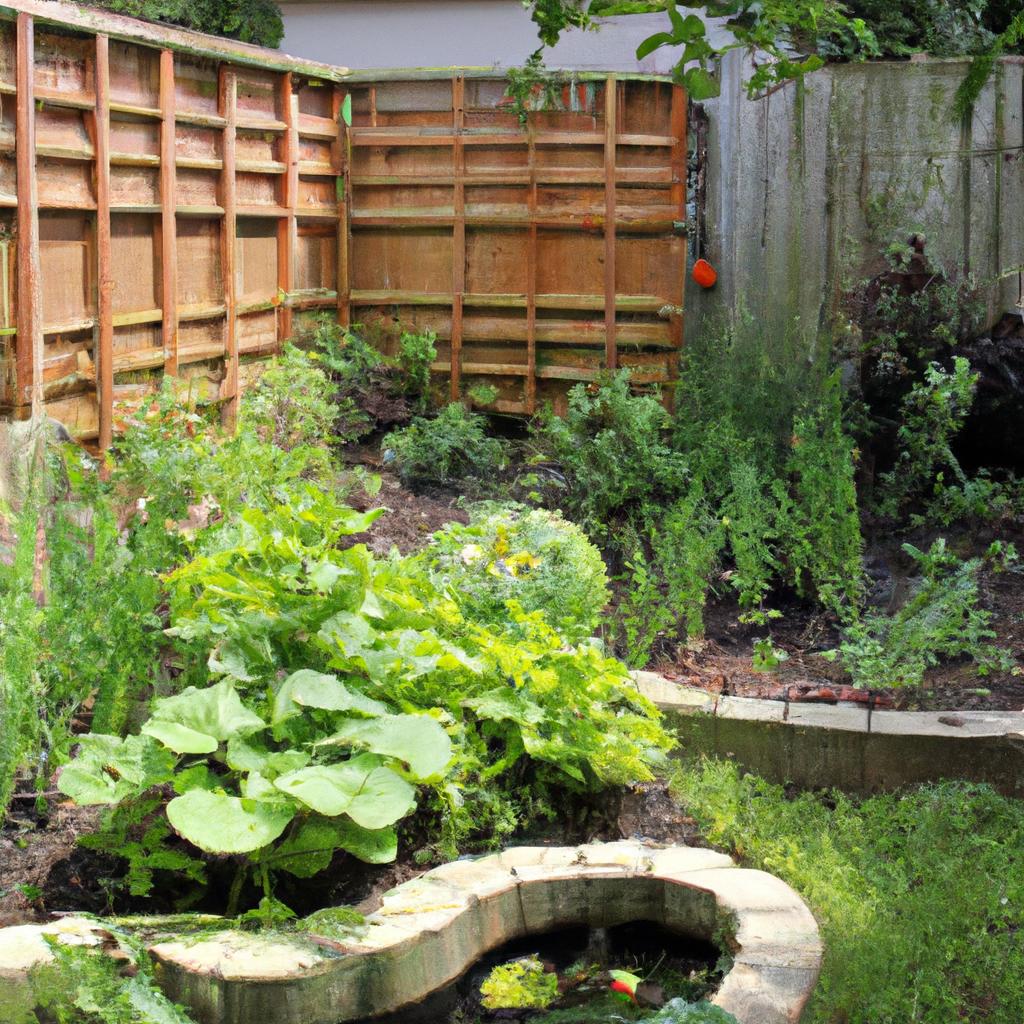
Understanding the Principles of Feng Shui in Garden Placement
When it comes to creating a Feng Shui vegetable garden, selecting the right location is crucial. Feng Shui principles emphasize the harmonious interaction between the natural elements and the flow of energy, or qBy understanding these principles, you can lay the foundation for a garden that radiates positive energy and fosters abundance.
Factors to Consider When Selecting a Location for Your Vegetable Garden
- Sunlight: Find an area that receives ample sunlight, as it is essential for the growth and vitality of your vegetables. Observe the sun’s path throughout the day to identify the optimal spot with the right balance of sun and shade.
- Wind and Water: Consider the wind patterns in your garden, as excessive wind can disrupt the flow of energy. Additionally, ensure proper drainage to prevent water accumulation and stagnant energy.
- Proximity to Your Home: Ideally, place your vegetable garden near your home to create a seamless connection between indoor and outdoor spaces. This proximity allows for easy access and encourages a stronger energetic bond.
- Surrounding Structures and Landforms: Take note of nearby structures, such as buildings or trees, that may cast shadows or obstruct sunlight. Additionally, consider the natural landforms, such as hills or slopes, as they can impact energy flow.
How to Evaluate the Energy Flow in Your Chosen Area
To evaluate the energy flow, conduct a simple observation in your chosen area. Stand in different parts of the space and pay attention to how you feel. Is there a sense of calmness and vitality? Or do you sense any stagnation or discomfort? Trust your instincts as they can guide you towards areas with better energy flow.
Additionally, you can use a Feng Shui compass, known as a Luo Pan, or consult with a Feng Shui expert to analyze the energy in your garden. They can provide insights into specific areas that may require adjustments or enhancements to achieve optimal energy flow.
By carefully considering these factors and evaluating the energy flow, you can choose the perfect location for your Feng Shui vegetable garden. Join me in the next section as we explore the art of designing your garden to enhance the flow of positive energy.
Stay tuned for Designing Your Feng Shui Vegetable Garden – Creating Harmony Through Arrangement.
Note: The article is written for the website homegardenArtful.com.
Designing Your Feng Shui Vegetable Garden
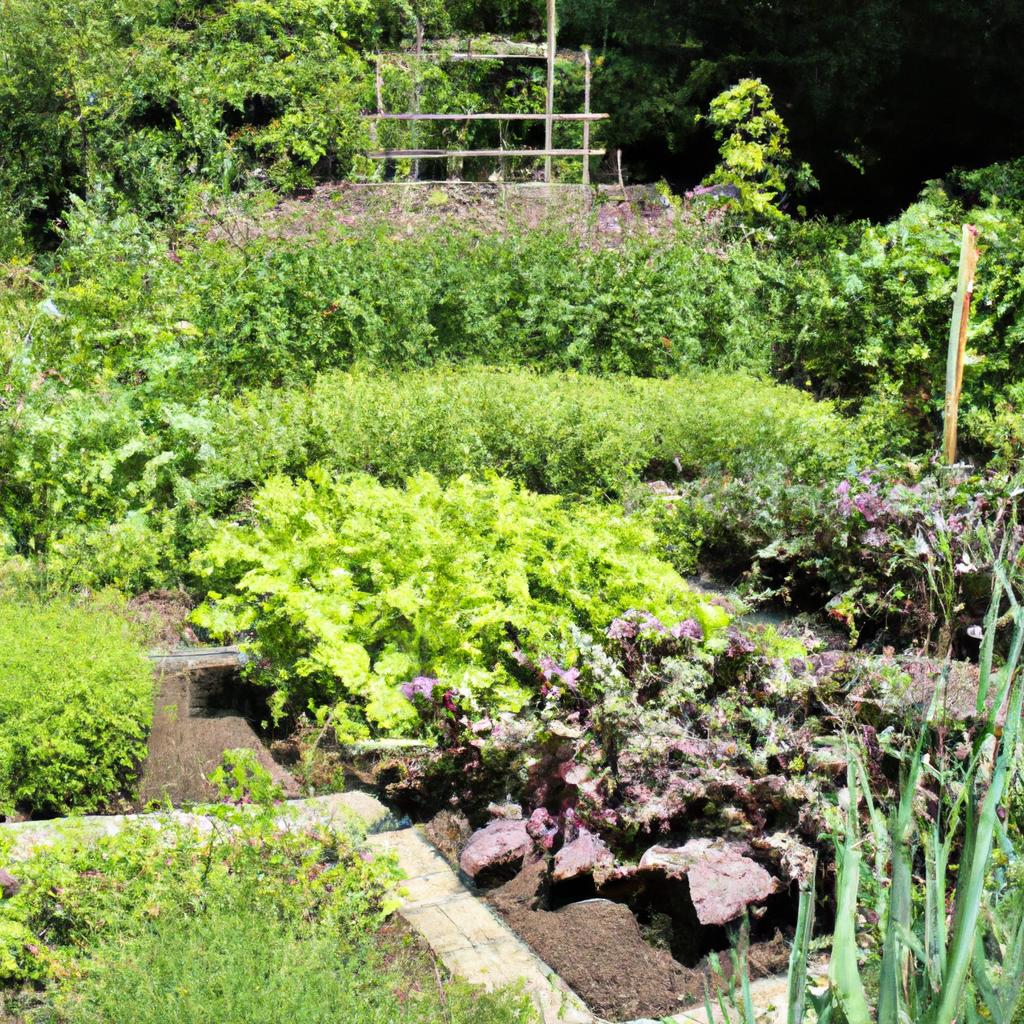
A. Incorporating the Five Elements of Feng Shui in Garden Design
When it comes to designing your Feng Shui vegetable Garden Design, the five elements play a crucial role in creating a harmonious and balanced environment. These elements, namely Wood, Fire, Earth, Metal, and Water, represent different energies and qualities. By incorporating them thoughtfully, you can enhance the positive flow of energy in your garden.
Consider using wooden structures like raised beds or trellises to represent the Wood element. Introduce the Fire element through vibrant flowers or decorative features, such as solar-powered lights. Incorporate the Earth element with rocks, stones, or pottery. Metal can be represented by garden tools or sculptures, while a small pond or a flowing water feature embodies the Water element.
B. Arranging Plants and Pathways to Enhance Energy Flow
The arrangement of plants and pathways in your Feng Shui vegetable garden significantly impacts the energy flow. Start by creating clear and meandering pathways that allow the energy to flow smoothly. Avoid straight lines, as they can cause stagnant energy. Instead, opt for curved paths that mimic the natural flow of water.
When it comes to planting, consider the principles of Yin and Yang. Balance tall plants with shorter ones, and mix leafy greens with vibrant flowering plants. Create harmony by alternating colors and textures throughout your garden. Incorporate fragrant herbs, such as lavender or basil, to stimulate the senses and attract positive energy.
C. Creating a Harmonious Balance of Colors and Shapes
Colors and shapes have a profound impact on the energy in your garden. In Feng Shui, each color represents a specific element and can evoke different emotions. For instance, green represents the Wood element and symbolizes growth and vitality, while red represents the Fire element and signifies passion and energy.
To create a harmonious balance, choose a color scheme that aligns with your garden’s purpose. For a soothing and peaceful atmosphere, opt for cool tones like blues and purples. If you seek more energy and vibrancy, incorporate warm colors like reds and oranges. Remember to balance the colors throughout your garden to maintain equilibrium.
In terms of shapes, consider incorporating a variety of forms. Rounded shapes, like circular planters or curved pathways, represent unity and harmony. Angular shapes, such as square beds or rectangular trellises, symbolize stability and structure. By combining different shapes, you create a visually appealing and energetically balanced space.
Continue reading Selecting the Right Vegetables – Nourishing Energy for Growth.
Note: The article is written for the website homegardenArtful.com.
Selecting the Right Vegetables
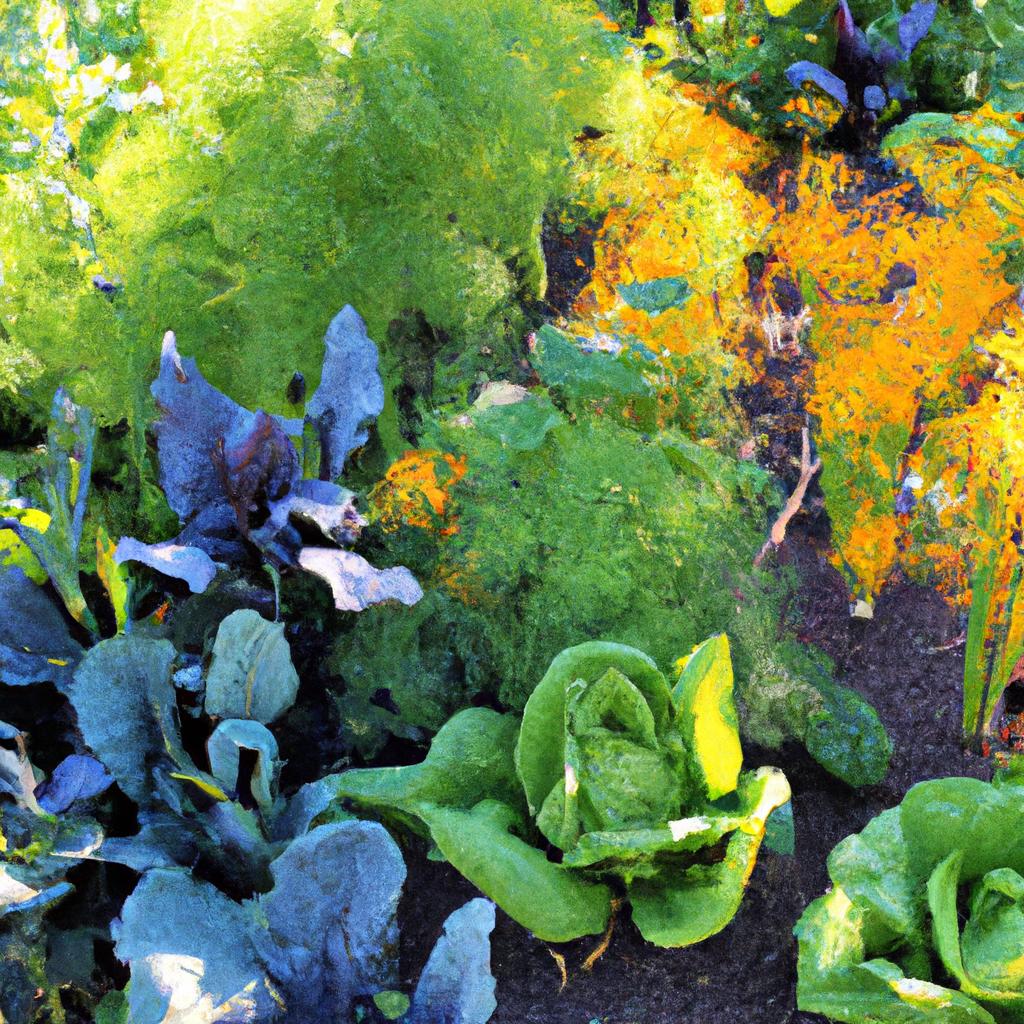
A. Feng Shui Principles for Vegetable Selection
When it comes to selecting vegetables for your Feng Shui garden, it’s essential to consider the principles of Feng ShuEach vegetable possesses its unique energy and characteristics that can influence the overall balance and harmony of your garden. Here are a few key principles to keep in mind:
- Yin and Yang: Strive for a balance between yin (passive) and yang (active) energies in your vegetable selection. Incorporate a mix of leafy greens and vibrant fruits to create a harmonious blend of energies.
- Five Elements: Consider the five elements of Feng Shui – Wood, Fire, Earth, Metal, and Water – and aim to include vegetables that represent each element. For example, leafy greens like lettuce and spinach symbolize the Wood element, while fiery chili peppers embody the Fire element.
B. Best Vegetables to Grow in a Feng Shui Garden
Certain vegetables are particularly well-suited for a Feng Shui garden, as they align with the principles and energies of this ancient practice. Here are some top choices to cultivate in your garden:
- Leafy Greens: Lettuce, spinach, and kale are excellent choices for their vibrant green colors and association with growth and vitality.
- Root Vegetables: Carrots, radishes, and potatoes represent the Earth element, grounding the energy and promoting stability in your garden.
- Peppers: Spicy peppers, such as chili or bell peppers, bring a fiery energy that stimulates passion and enthusiasm.
- Herbs: Basil, rosemary, and mint not only add aromatic flavors to your meals but also infuse your garden with their refreshing scents and healing properties.
C. Considering the Energetic Properties of Each Vegetable
In Feng Shui, each vegetable possesses unique energetic properties that can influence the energy flow in your garden. Consider the following characteristics when selecting and arranging your vegetables:
- Colors: Pay attention to the colors of the vegetables you choose. Vibrant greens promote growth and vitality, while reds stimulate passion and energy.
- Shapes: Different vegetables have distinct shapes, ranging from round to elongated. Incorporate a variety of shapes to create visual interest and balance in your garden.
- Growth Patterns: Some vegetables, like climbing beans or sprawling squash, have dynamic growth patterns. Use them strategically to guide the flow of energy and add movement to your garden.
By carefully selecting the right vegetables and understanding their energetic properties, you can create a well-balanced and vibrant Feng Shui vegetable garden that radiates positive energy and abundance.
Continue reading to Maintaining a Harmonious Environment – Nurturing Your Garden’s Energy.
Maintaining a Harmonious Environment
A. Proper Care and Maintenance Techniques for a Feng Shui Vegetable Garden
To ensure the continued harmony and vitality of your Feng Shui vegetable garden, it’s essential to employ proper care and maintenance techniques. Here are some key practices to keep in mind:
- Watering: Water your plants mindfully, maintaining a balance between overwatering and underwatering. Consider the specific water requirements of each vegetable and adjust accordingly. Use gentle watering methods to avoid disrupting the energy flow within your garden.
- Pruning and Weeding: Regularly prune your plants to promote healthy growth and remove any diseased or overgrown branches. Keep weeds at bay as they can disrupt the flow of energy. Approach pruning and weeding with a focused mindset, visualizing the removal of any negative energy from your garden.
- Organic Pest Control: Emphasize natural and organic pest control methods to maintain the positive energy of your garden. Introduce beneficial insects, such as ladybugs and praying mantises, to control pests. Utilize companion planting techniques to repel harmful insects naturally.
B. Regularly Assessing and Adjusting the Garden’s Energy Flow
The energetic dynamics of your Feng Shui vegetable garden are not static; they evolve over time. It’s vital to regularly assess the energy flow within your garden and make adjustments as needed. Consider the following:
- Observation: Spend time observing your garden, noting any areas that feel stagnant or imbalanced. Look for signs of struggling plants or areas with excessive shade or harsh sunlight. Trust your intuition and connect with the energy of your garden.
- Adjustment: Once you’ve identified areas that require attention, take action to rebalance the energy. This could involve rearranging plant placements, adding or removing objects, or adjusting the flow of water and wind. Trust your instincts and make changes that feel right for your garden’s energy.
C. Using Feng Shui Remedies for Common Garden Issues
Every garden faces its unique challenges, but there are Feng Shui remedies that can help address common issues. Consider these remedies to maintain the harmony of your Feng Shui vegetable garden:
- Energetic Cleansing: Regularly cleanse your garden’s energy by smudging with sage or burning incense. This ritual helps dispel any negative energy and reinvigorates the positive flow within your garden.
- Crystals and Wind Chimes: Place crystals strategically throughout your garden to amplify positive energy. Hang wind chimes to encourage the circulation of harmonious sounds and gentle breezes.
By following these maintenance practices and implementing Feng Shui remedies, you can ensure that your vegetable garden remains a harmonious and thriving sanctuary.
Stay tuned for Enjoying the Fruits of Your Labor – Nourishing Body and Soul.
Note: The article is written for the website homegardenArtful.com.
Conclusion
In conclusion, creating a Feng Shui vegetable garden is a remarkable way to enhance the energy, beauty, and abundance of your outdoor space. By understanding the principles of Feng Shui, you can cultivate a harmonious environment where positive energy flows freely, benefiting both your plants and your well-being.
Throughout this article, we have explored the essence of Feng Shui and its importance in gardening. We’ve learned how to choose the right location for our vegetable garden, design it using the five elements of Feng Shui, select the most suitable vegetables, and maintain a harmonious atmosphere. By incorporating these practices into our gardening routine, we can experience the profound benefits that Feng Shui offers.
Imagine strolling through your lush, vibrant garden, feeling the gentle breeze as it carries the positive energy of Feng ShuYou are enveloped in a sanctuary of abundance, where every plant thrives, and the cycle of life unfolds before your eyes. The rewards of your efforts are not only the bountiful harvests but also the deep connection you feel with nature and the sense of balance and tranquility that permeates your being.
So, why wait? Start your journey to a Feng Shui vegetable garden today, and witness the transformation it brings to your outdoor space and your life. Let the energy flow, embrace the abundance, and create a haven of harmony and vitality in your very own backyard.
Remember, at homegardenArtful.com, we are dedicated to providing you with valuable insights, practical tips, and inspiration to elevate your gardening experience. Explore our website for more articles on gardening, landscaping, and embracing the beauty of nature in your home.
Experience the magic of a Feng Shui vegetable garden with homegardenArtful.com.
Note: The article is written for the website homegardenArtful.com.

